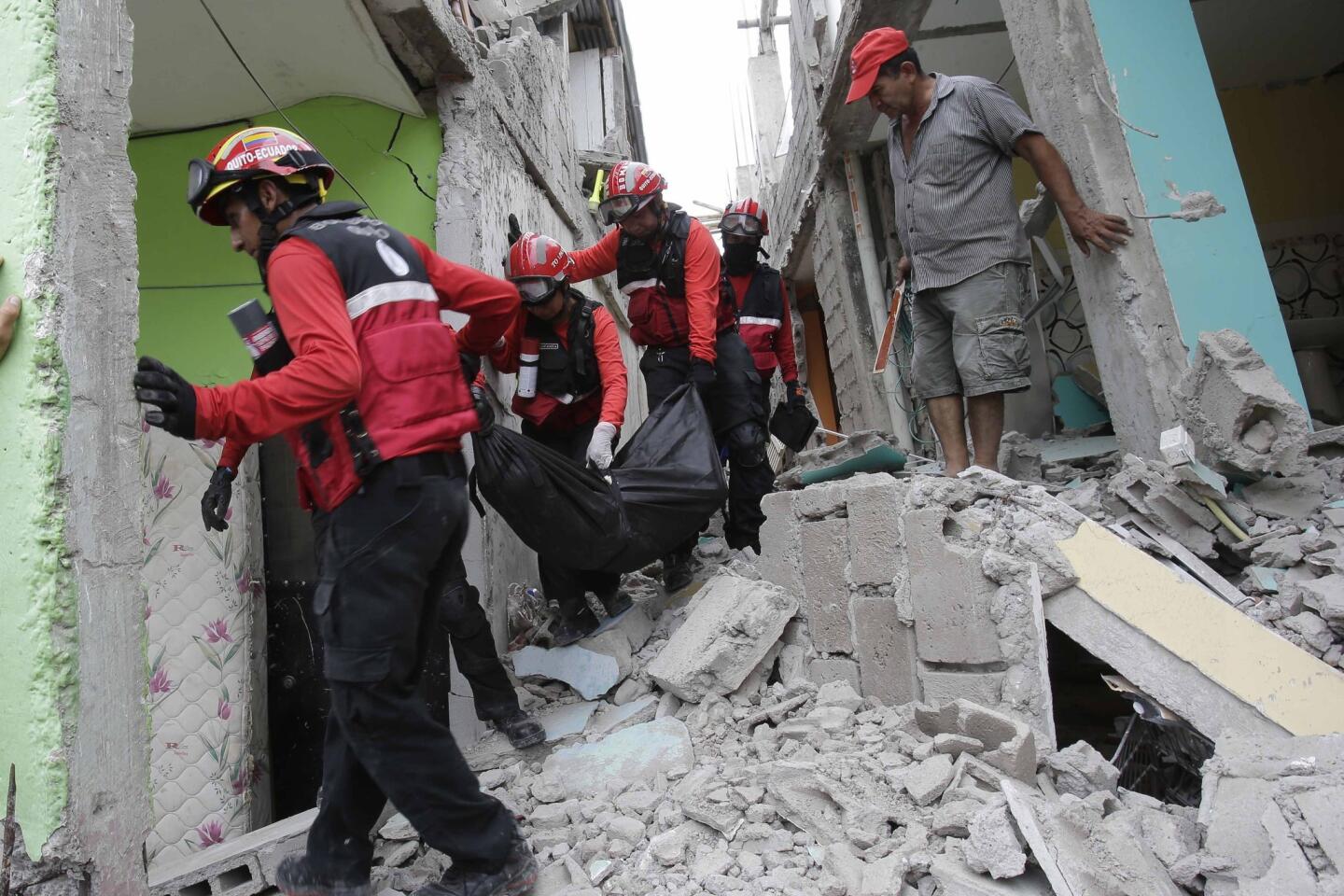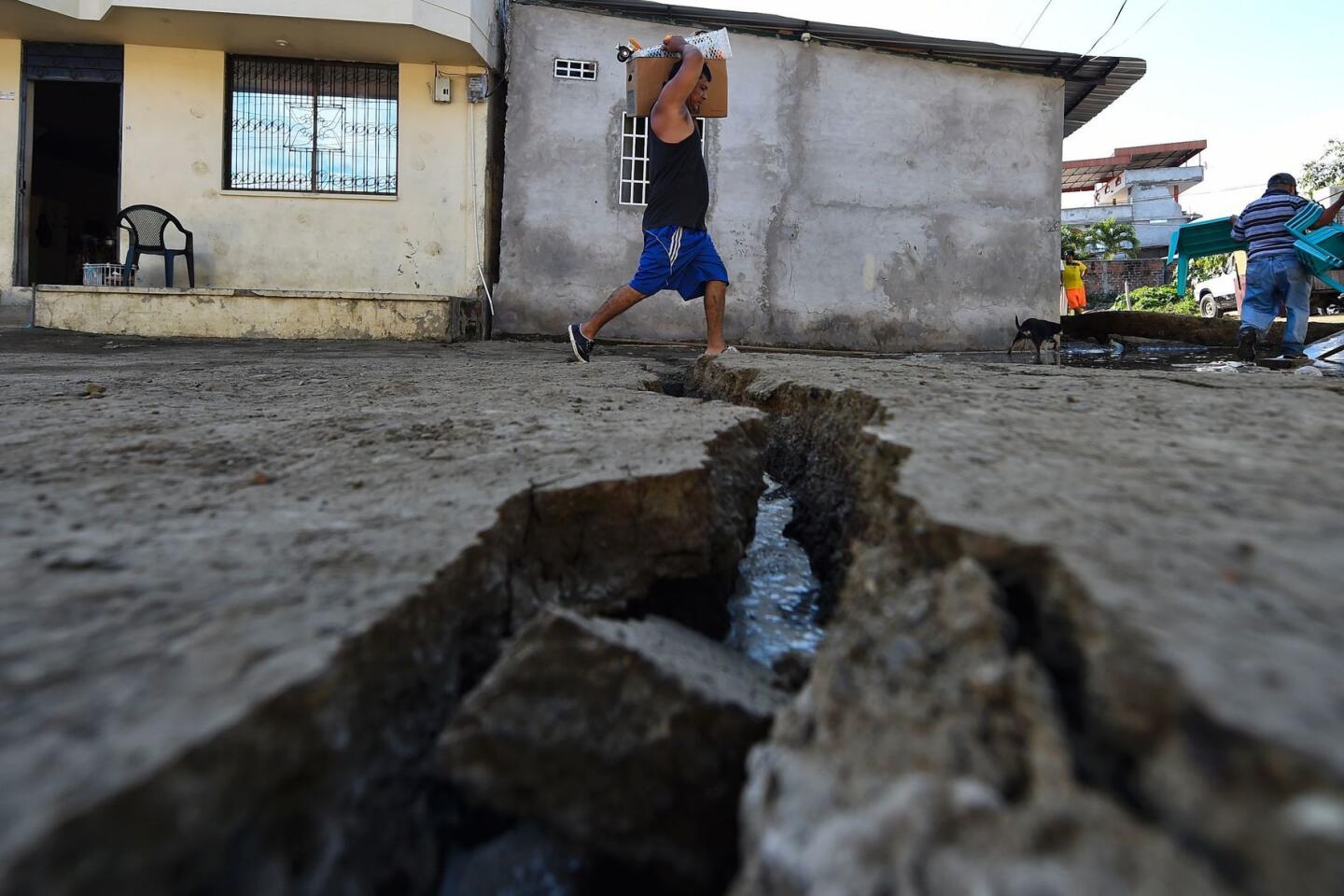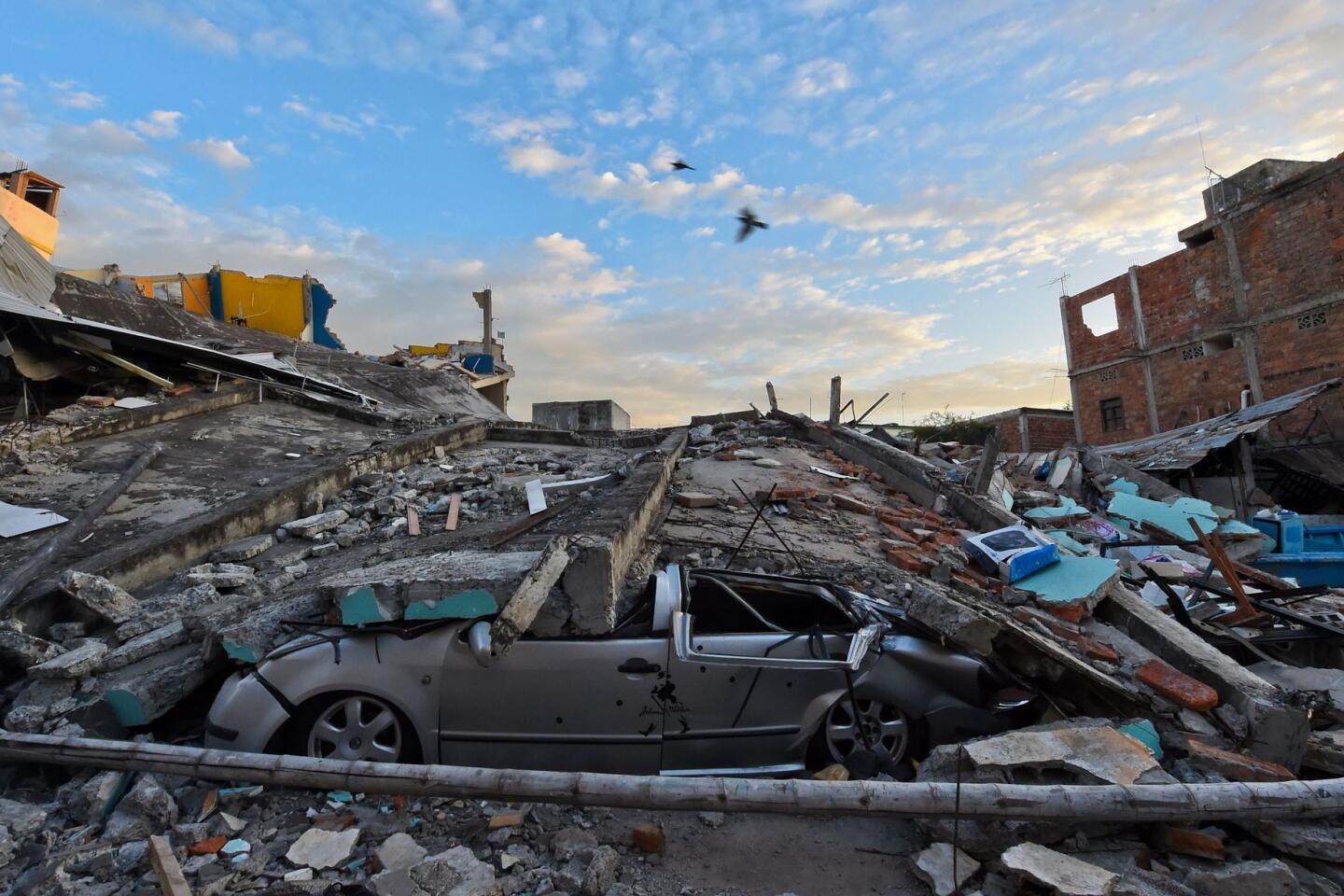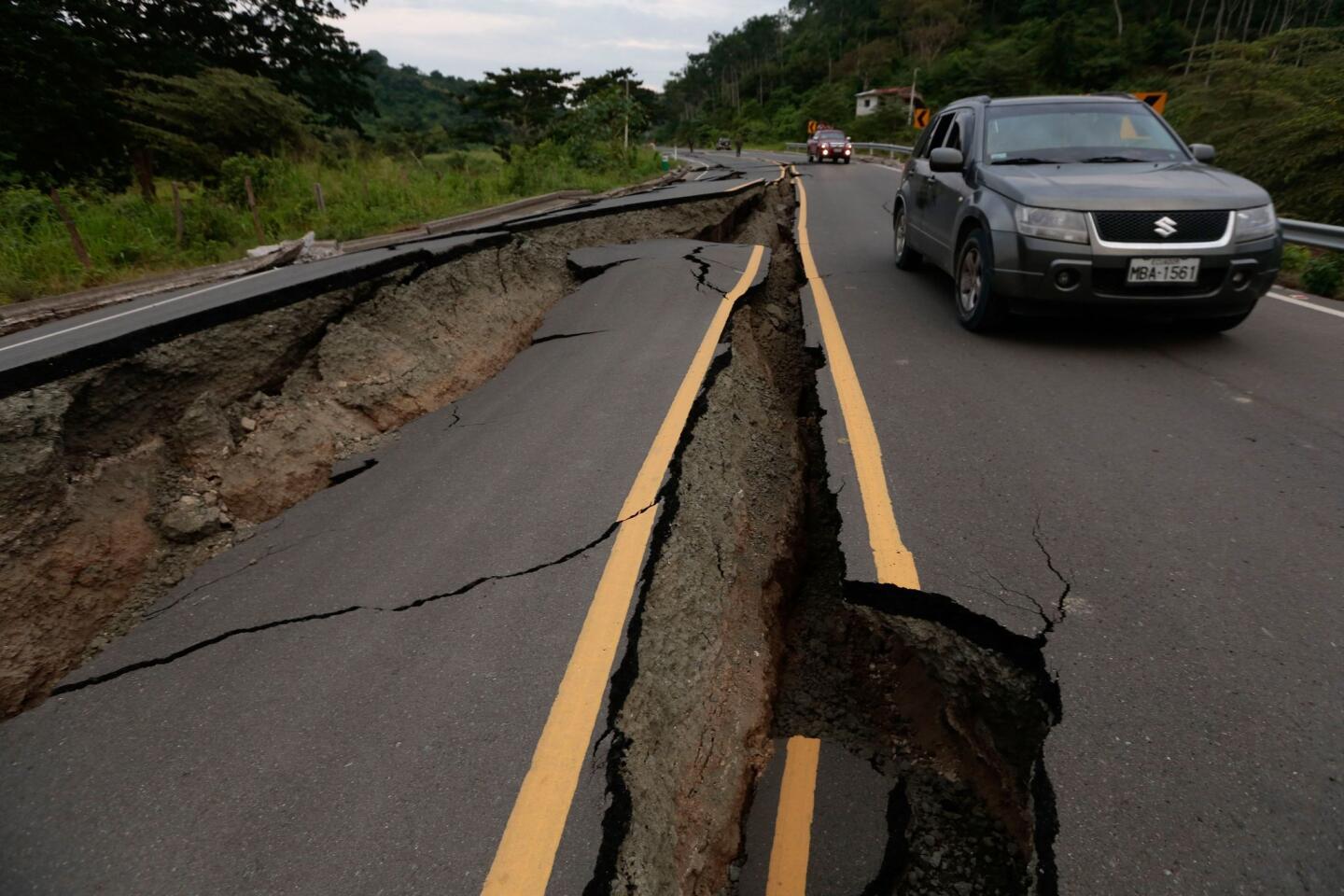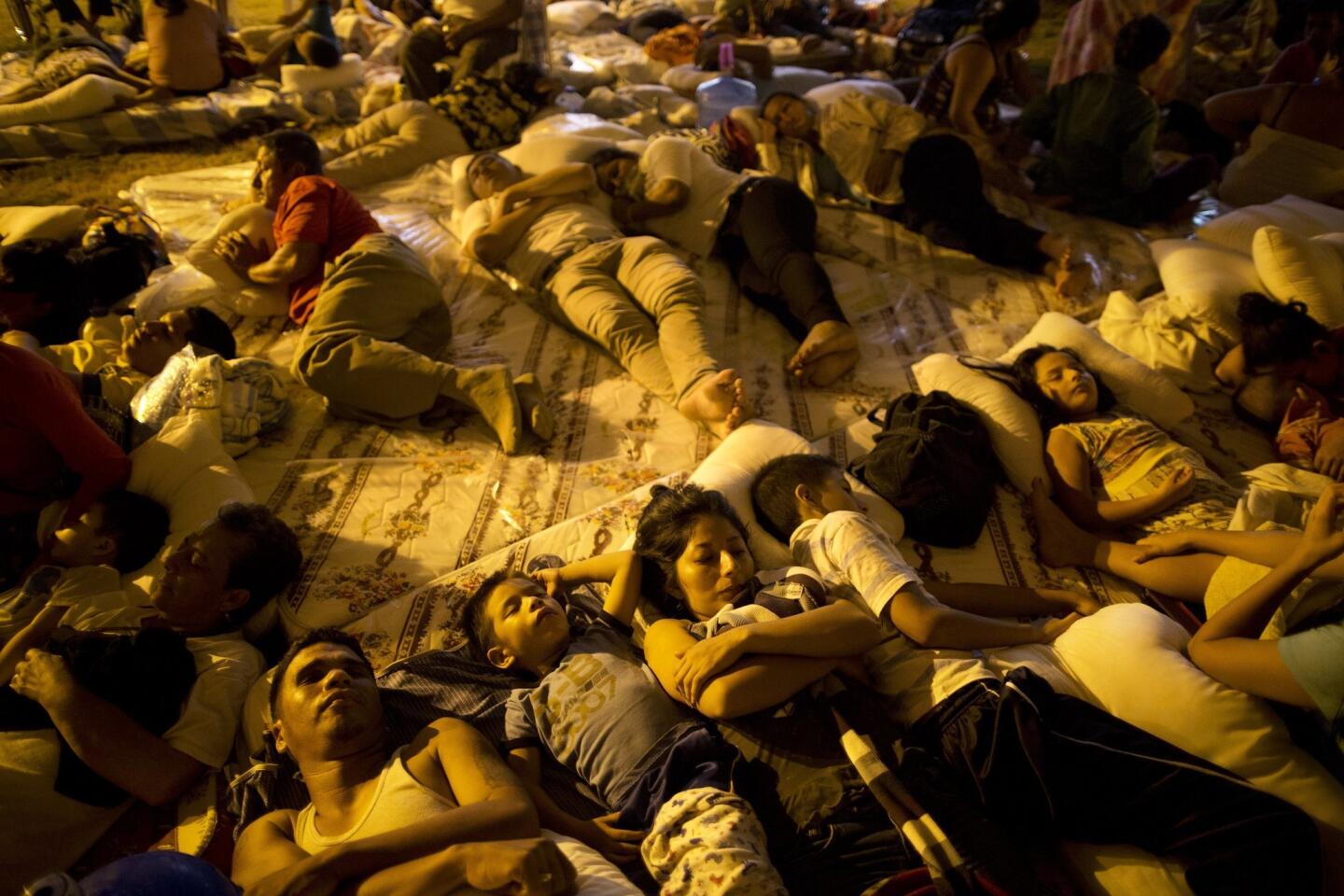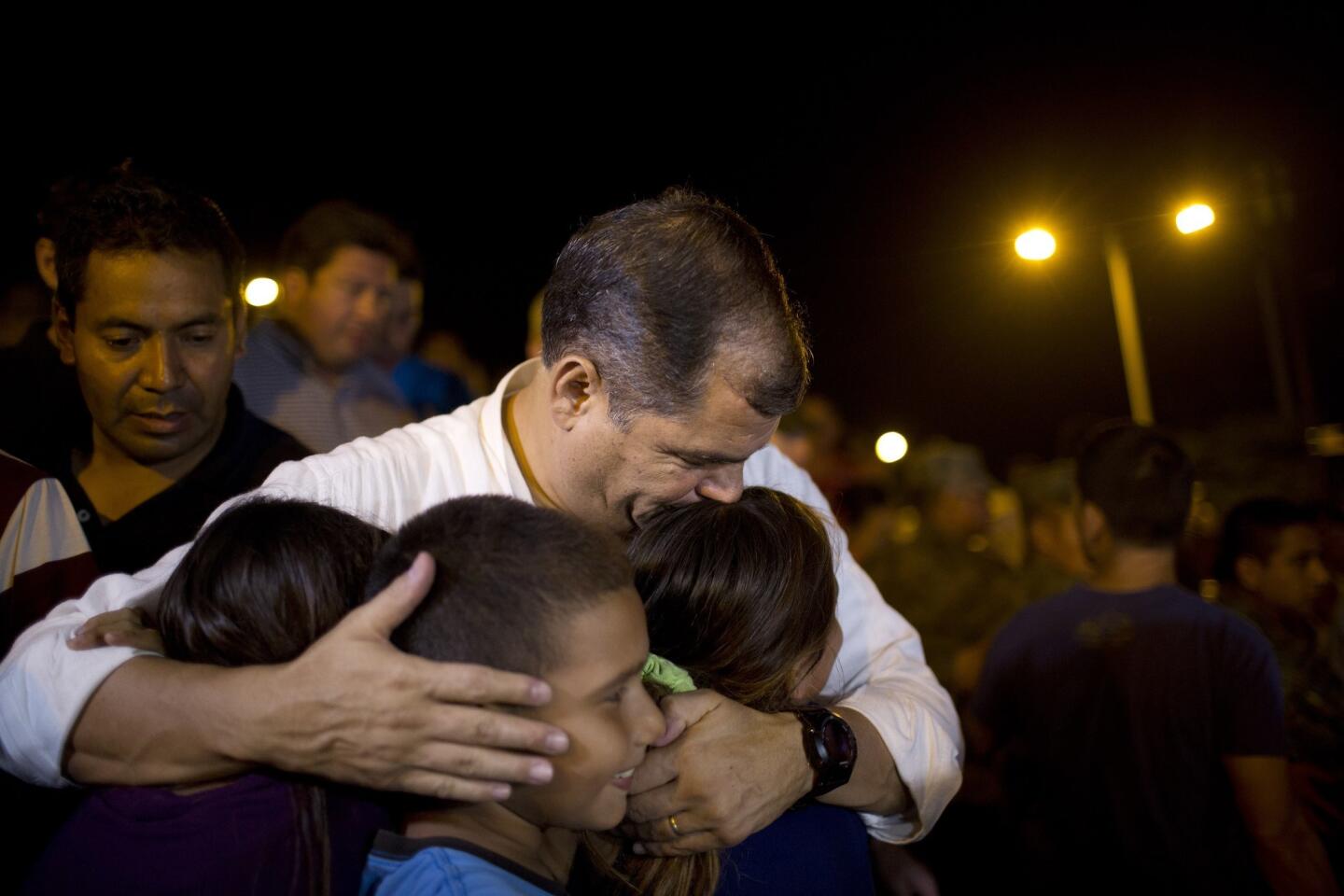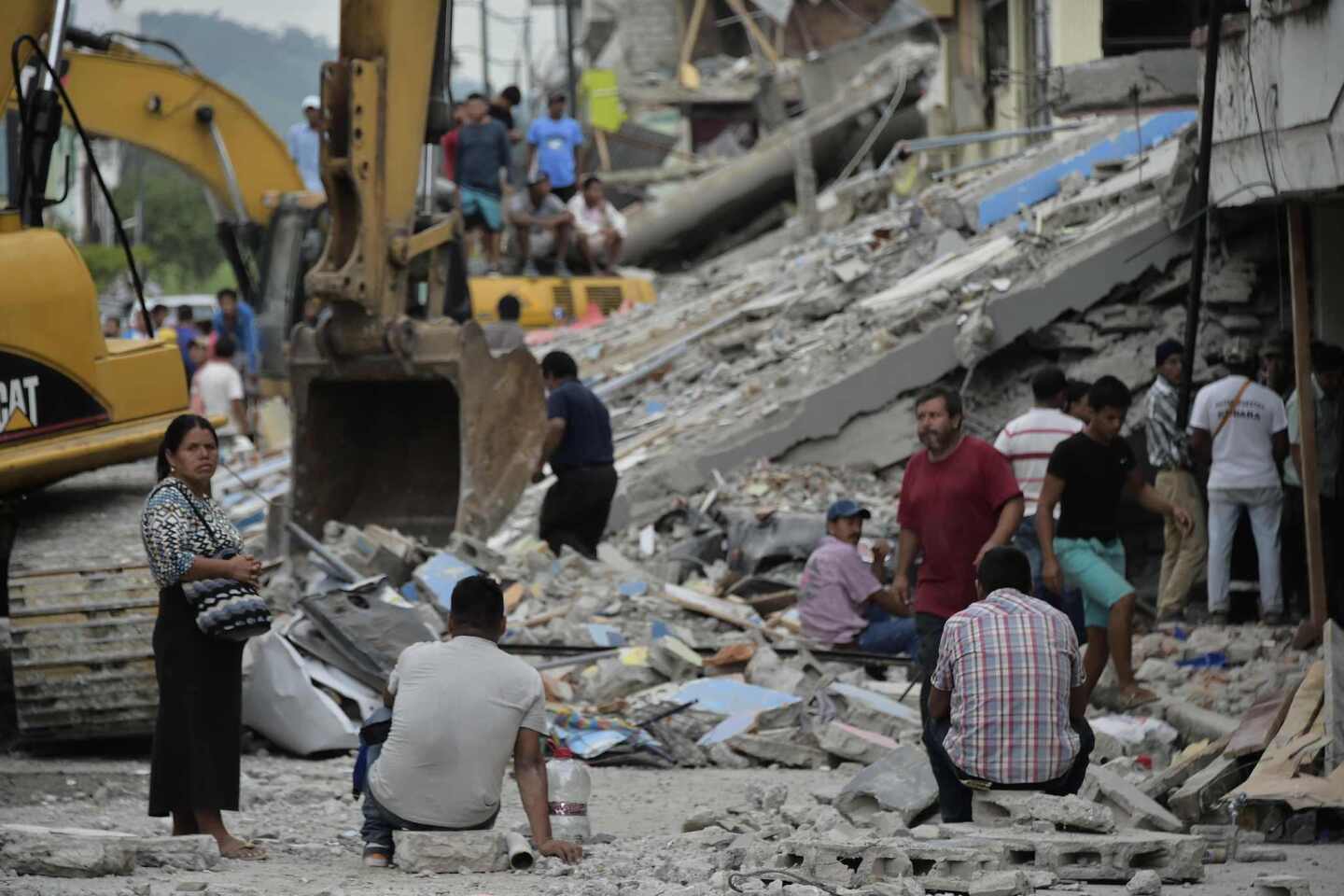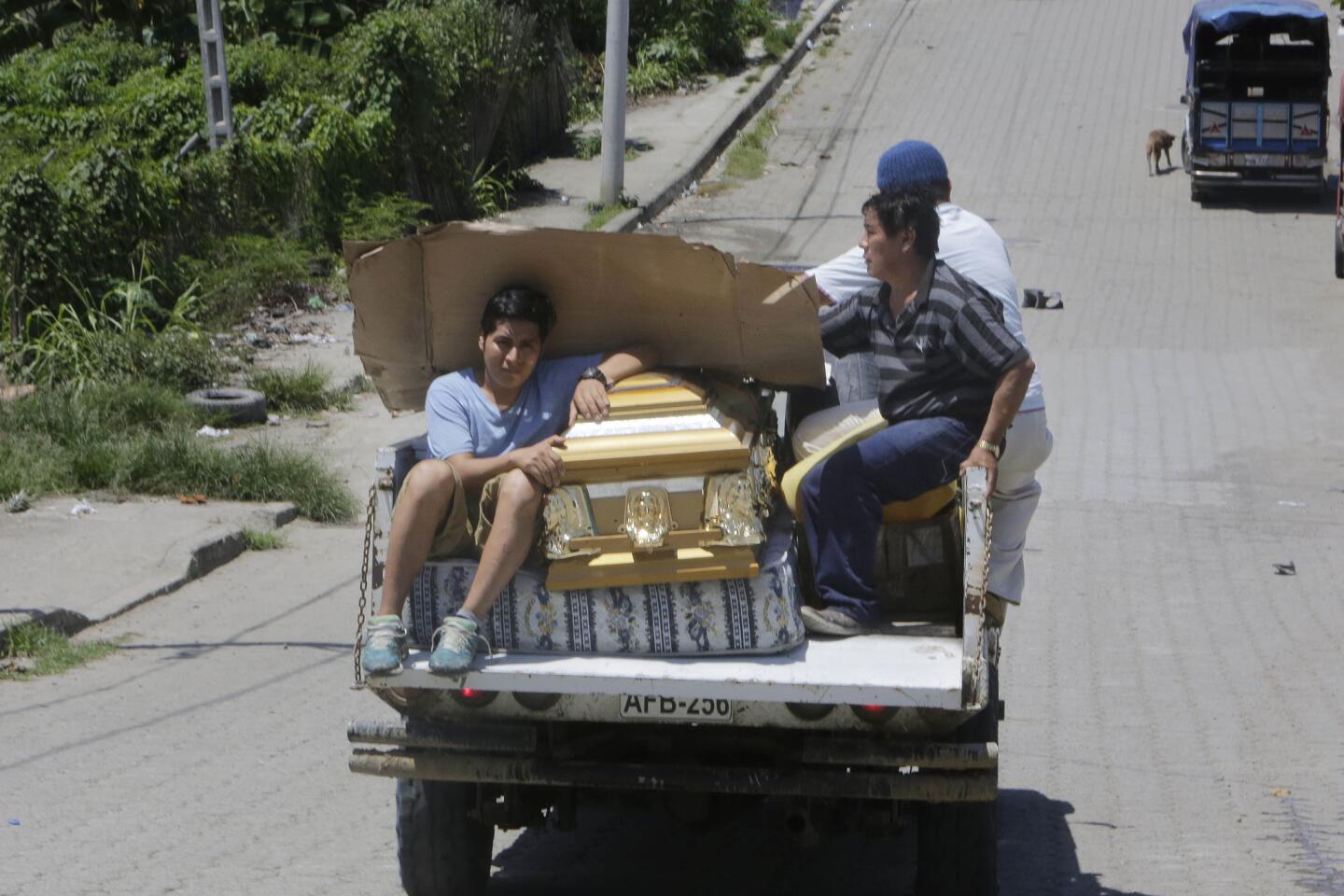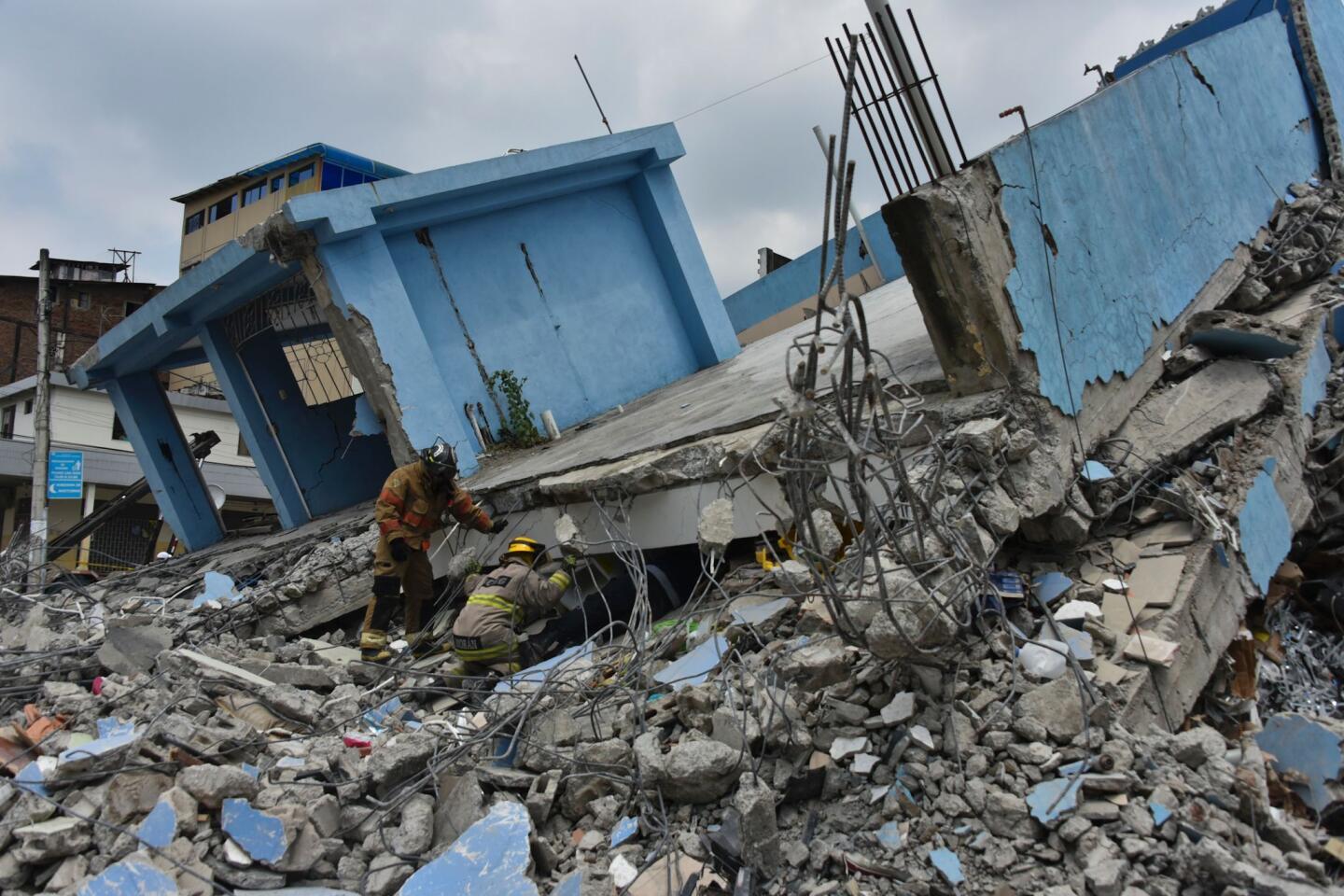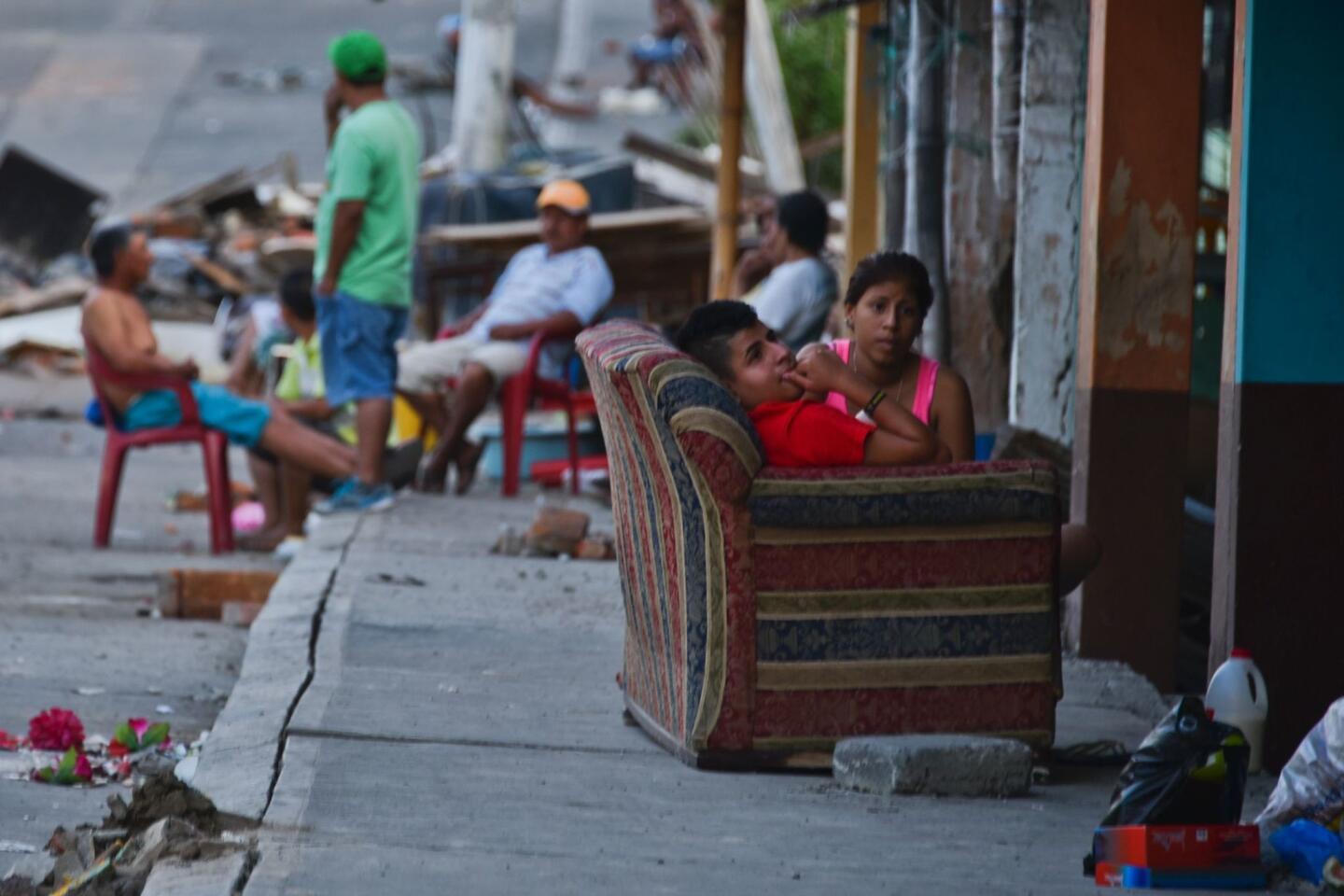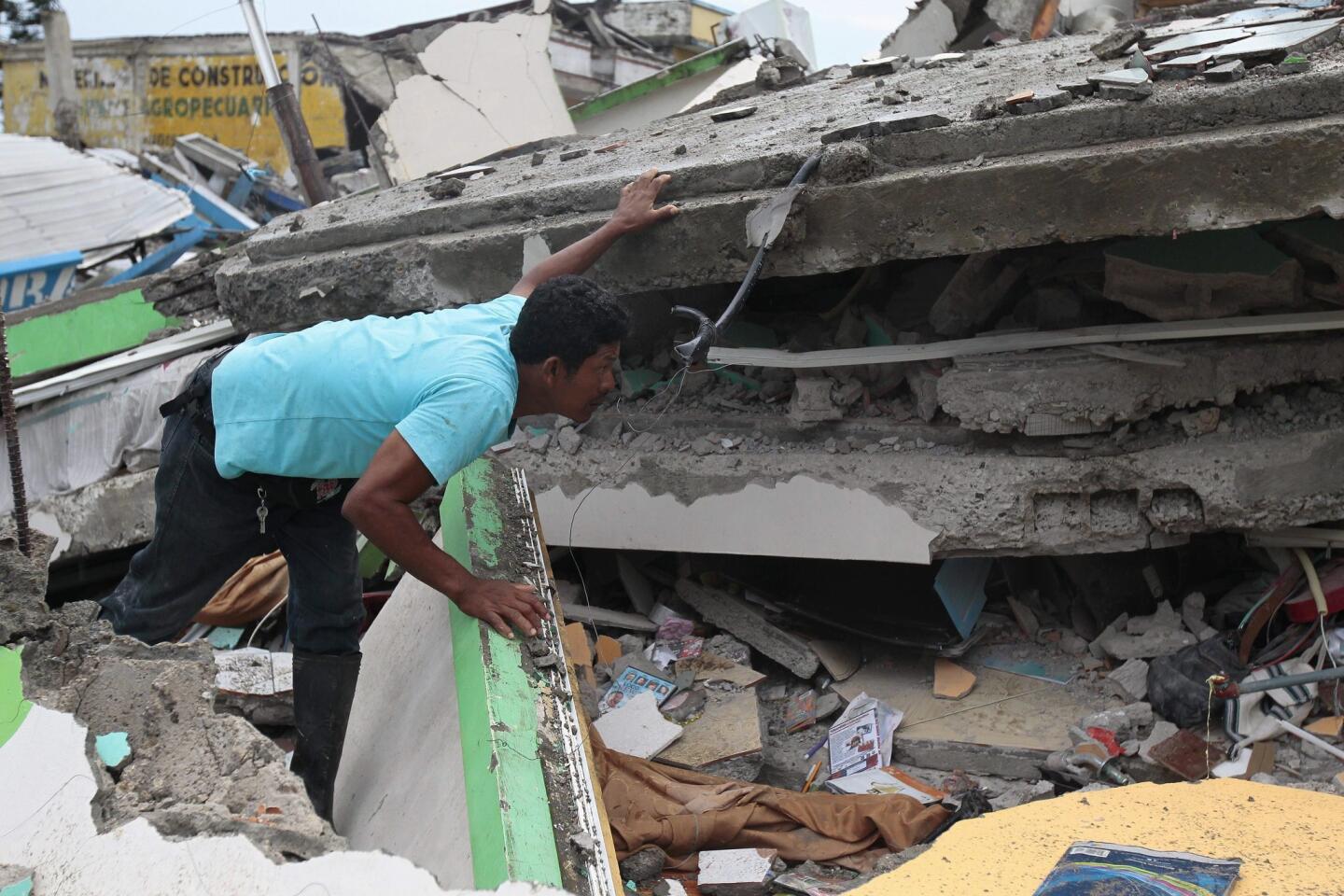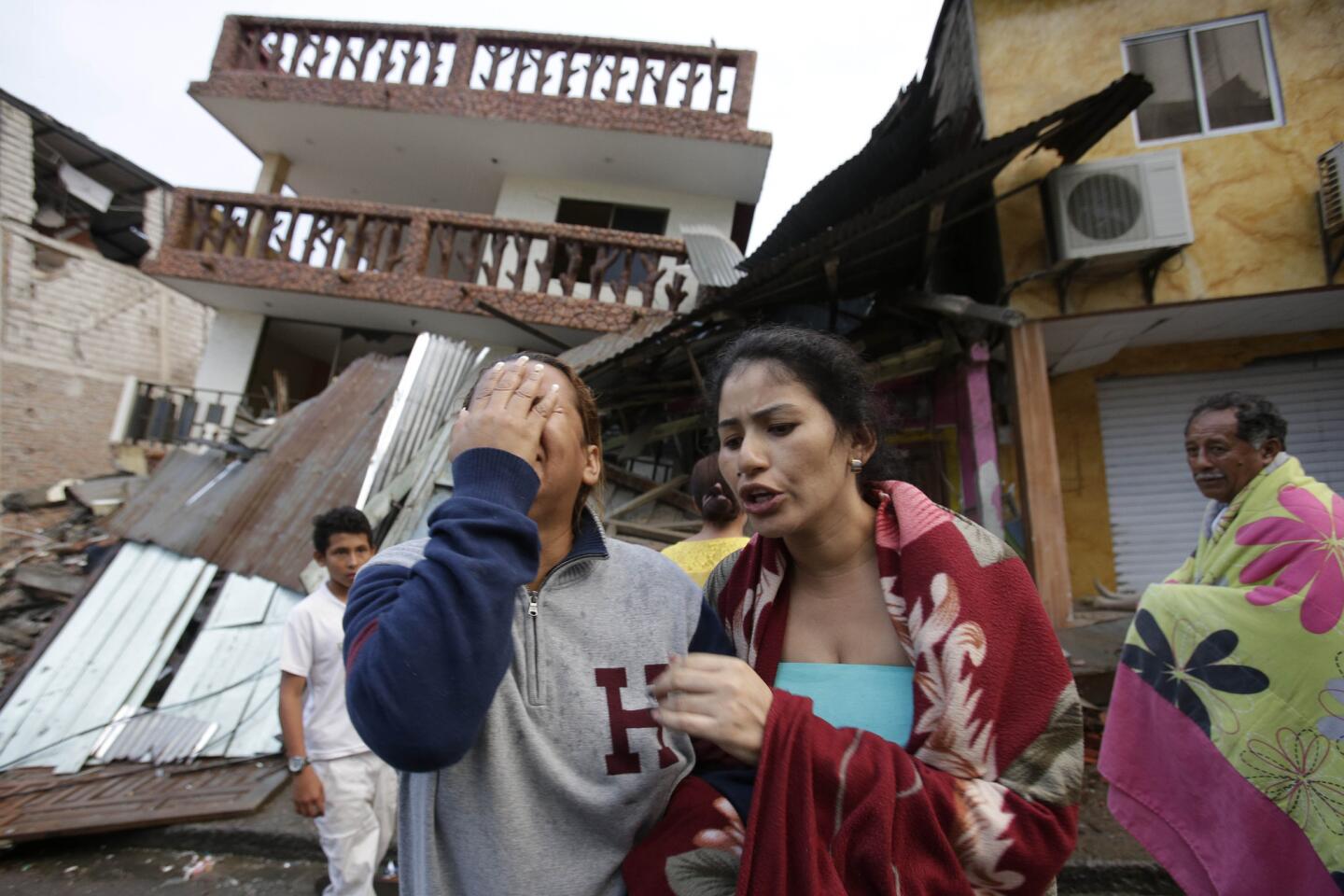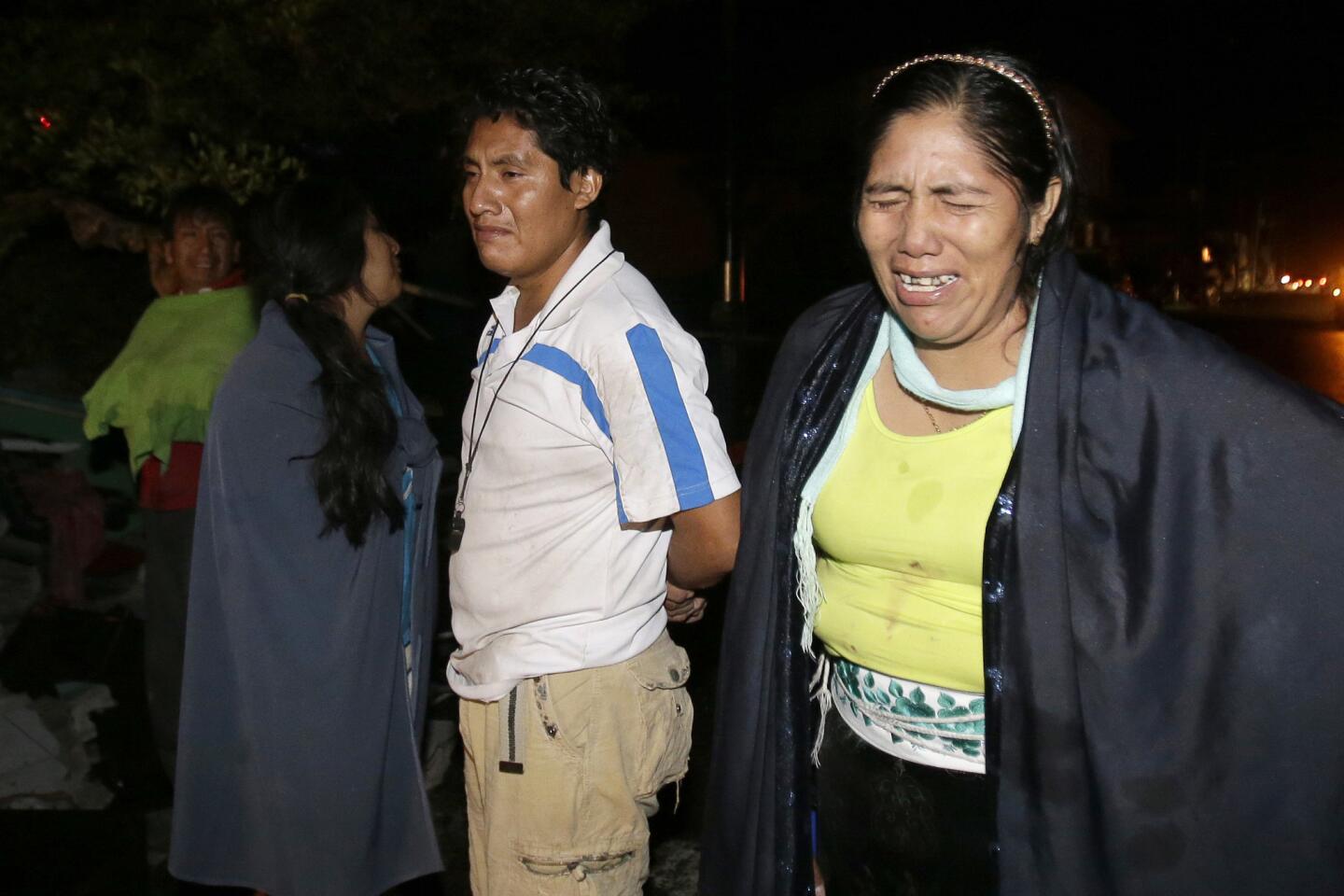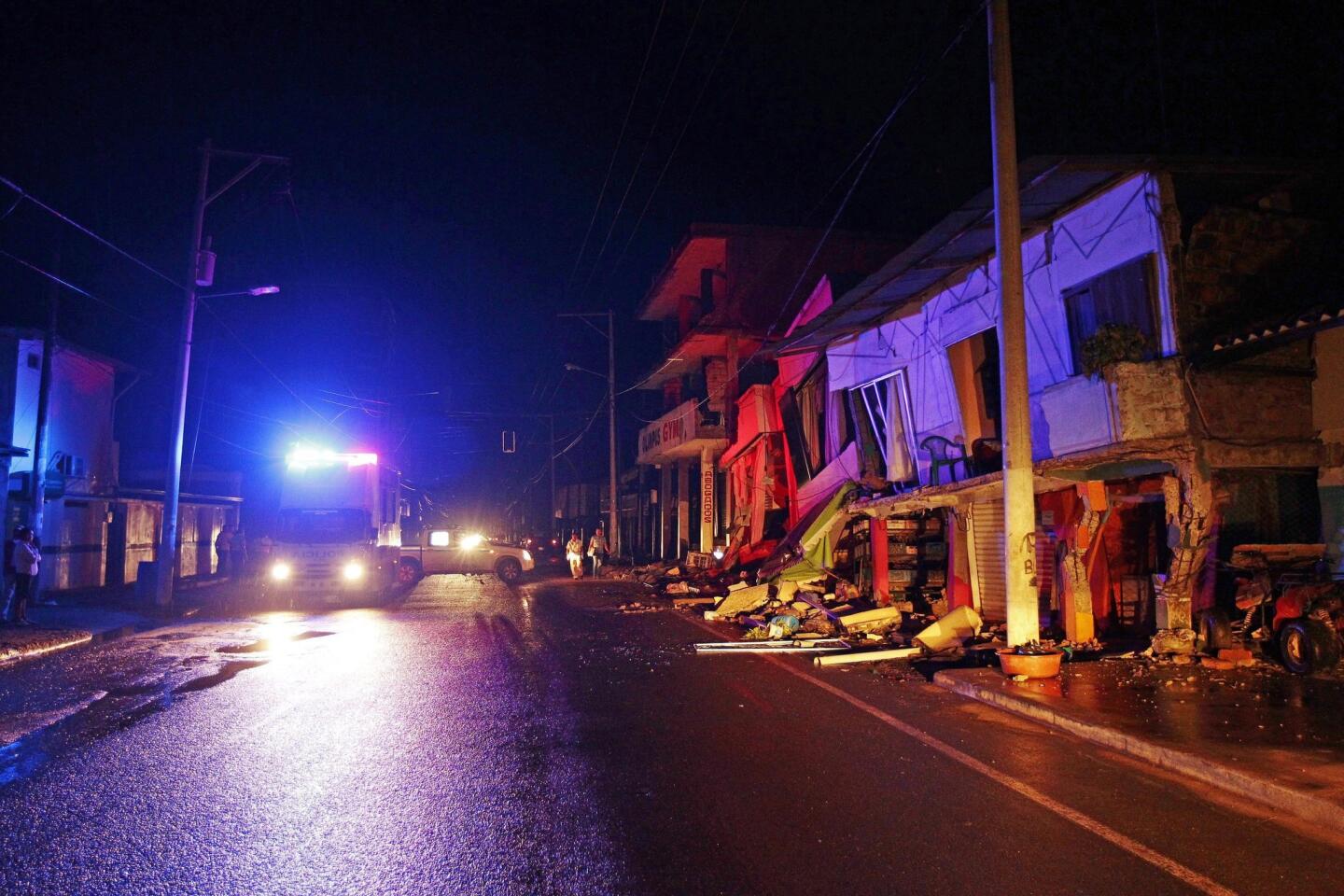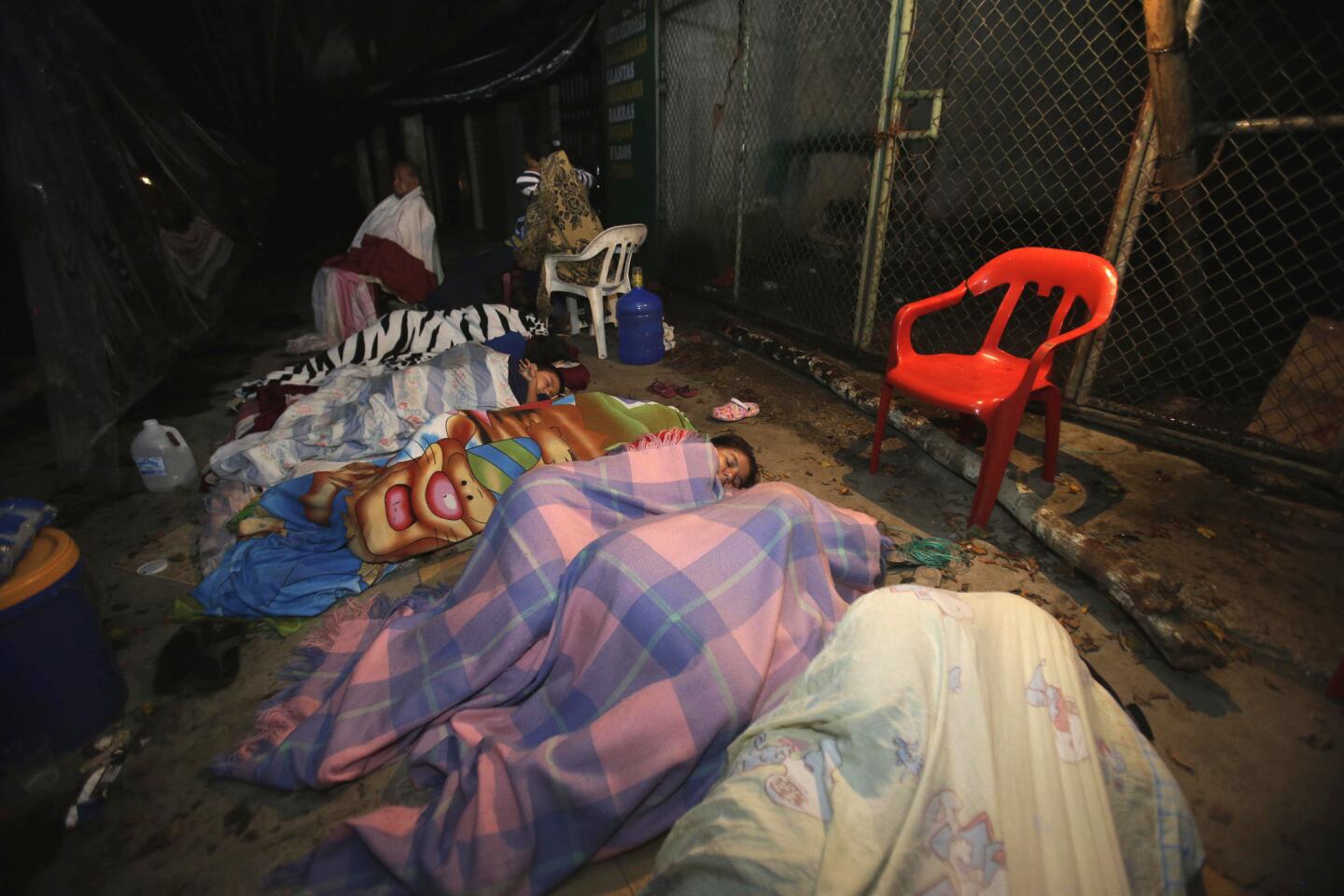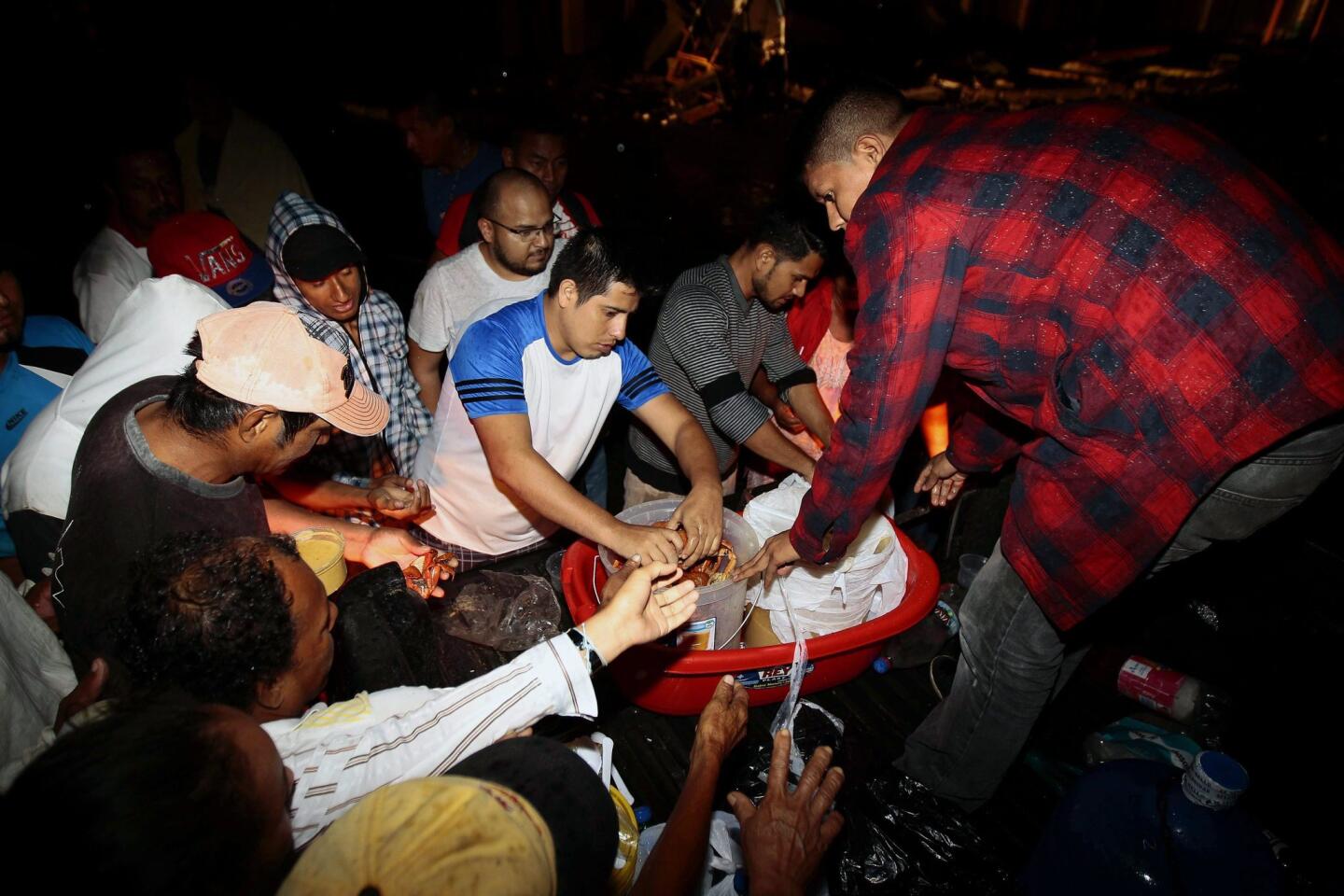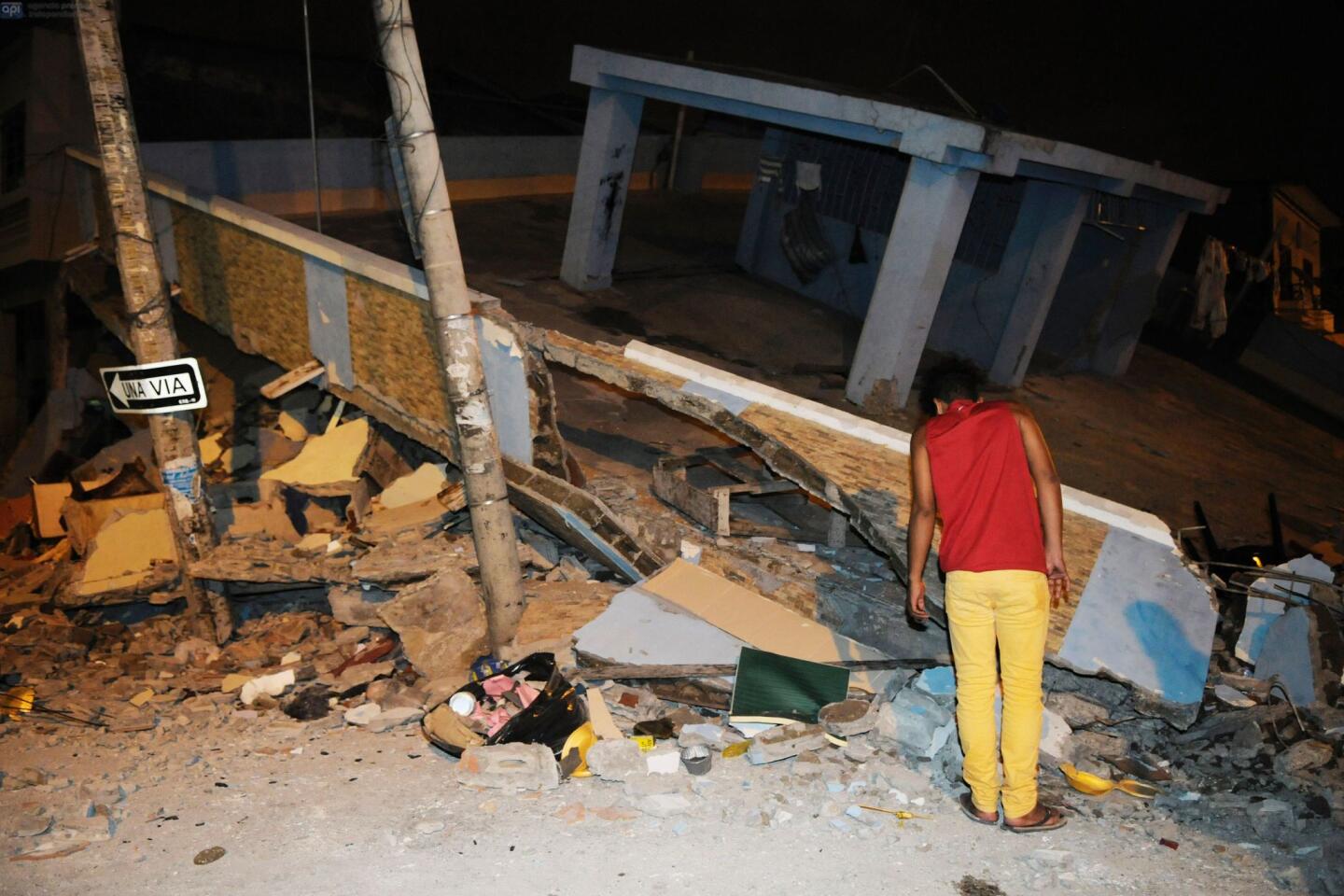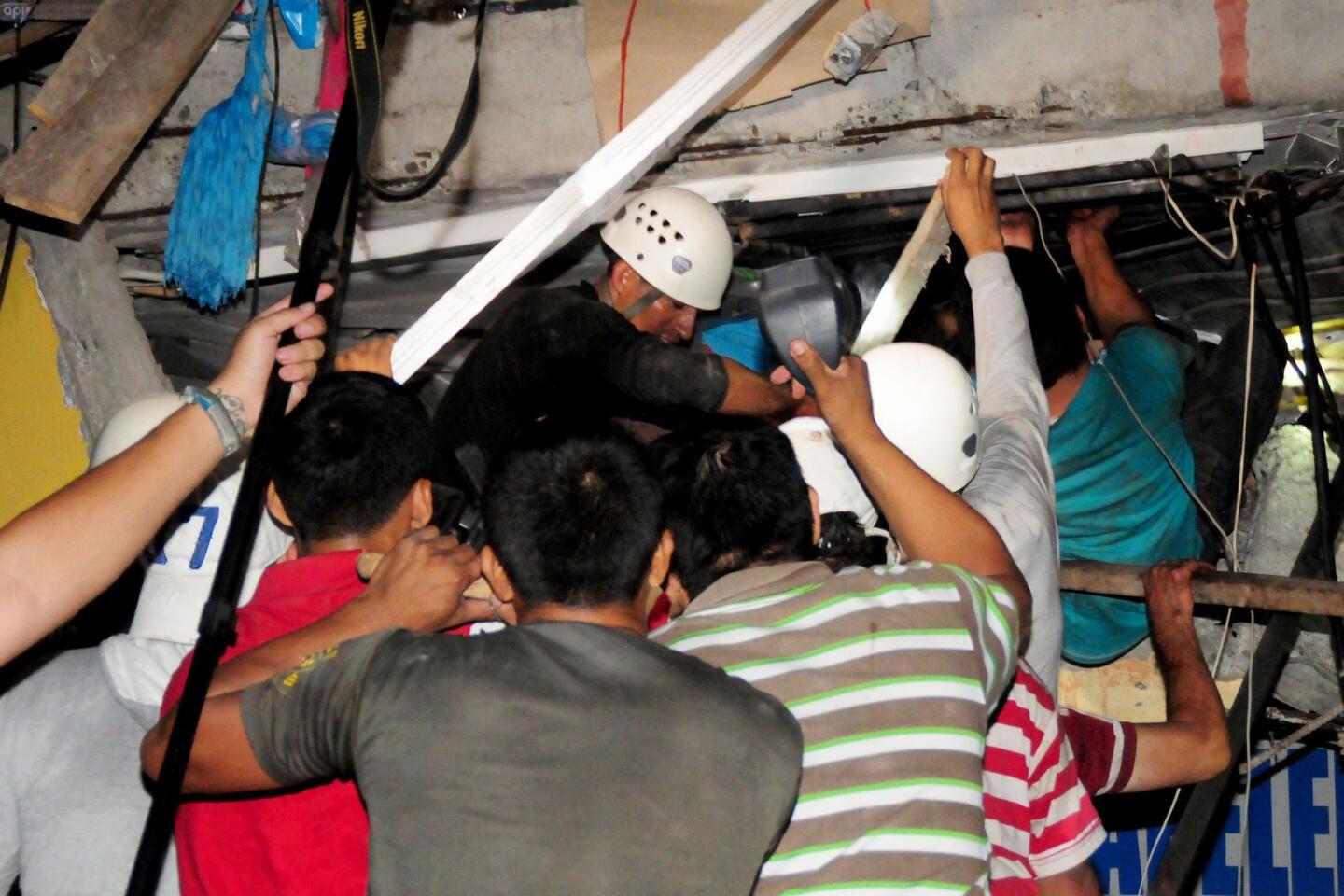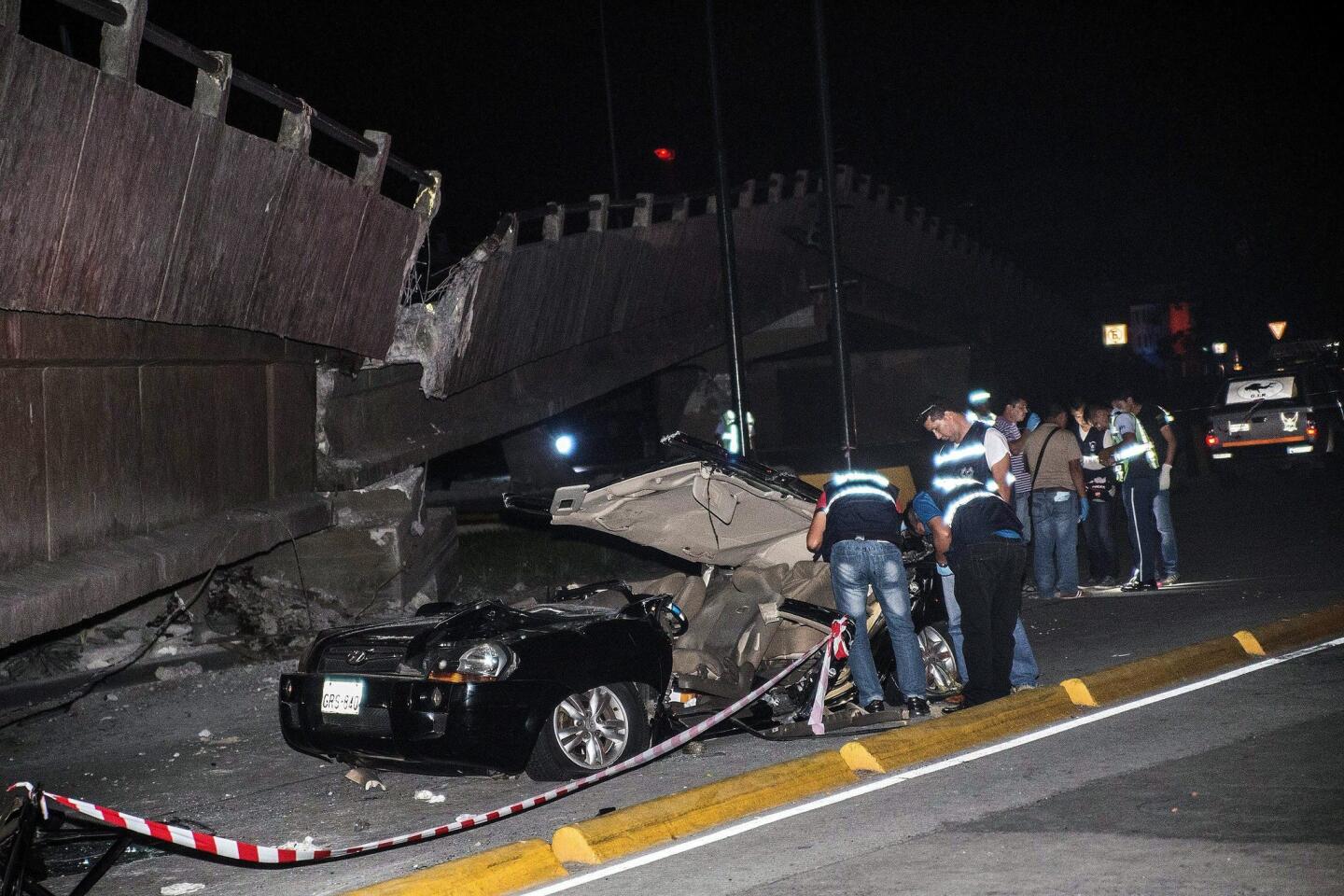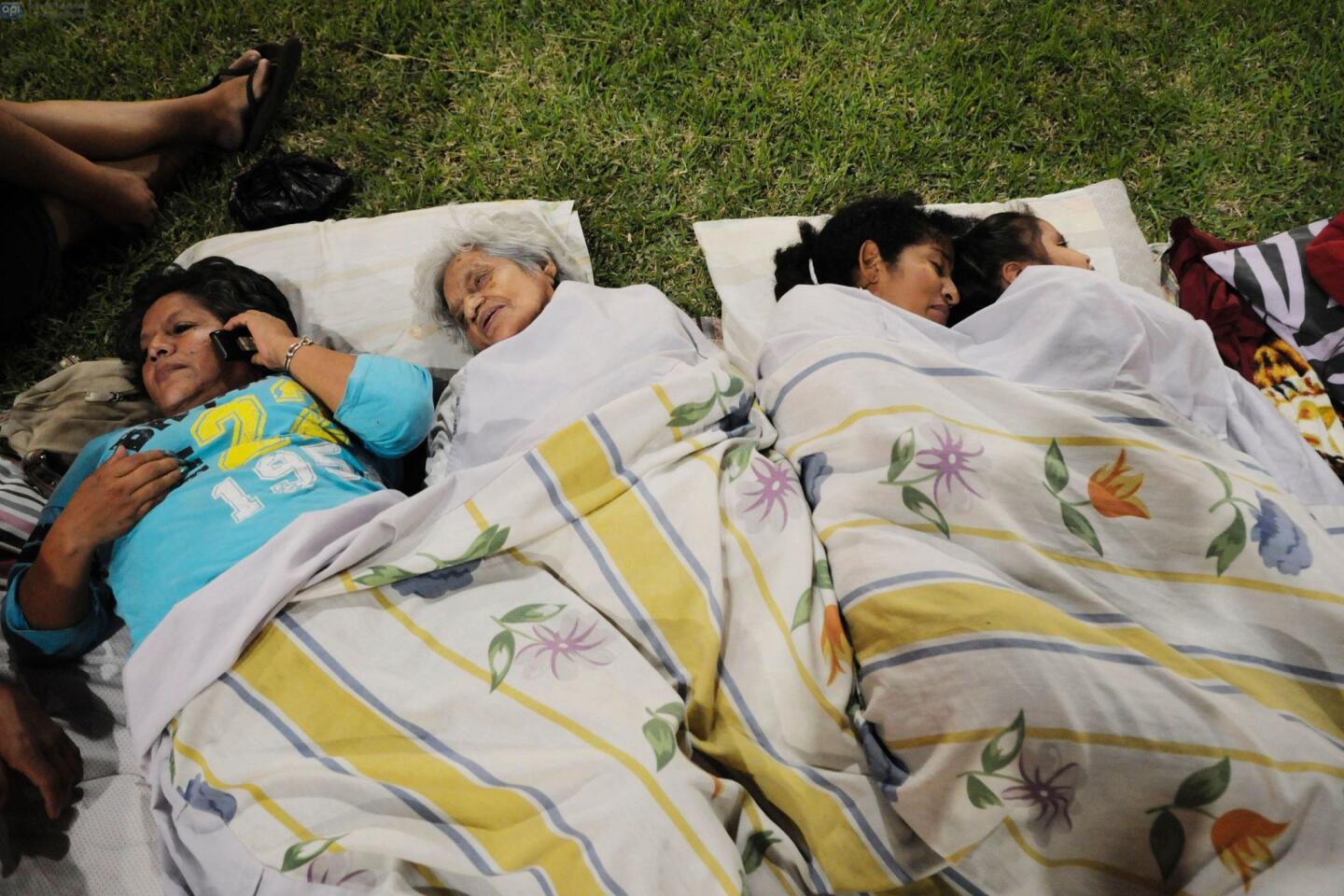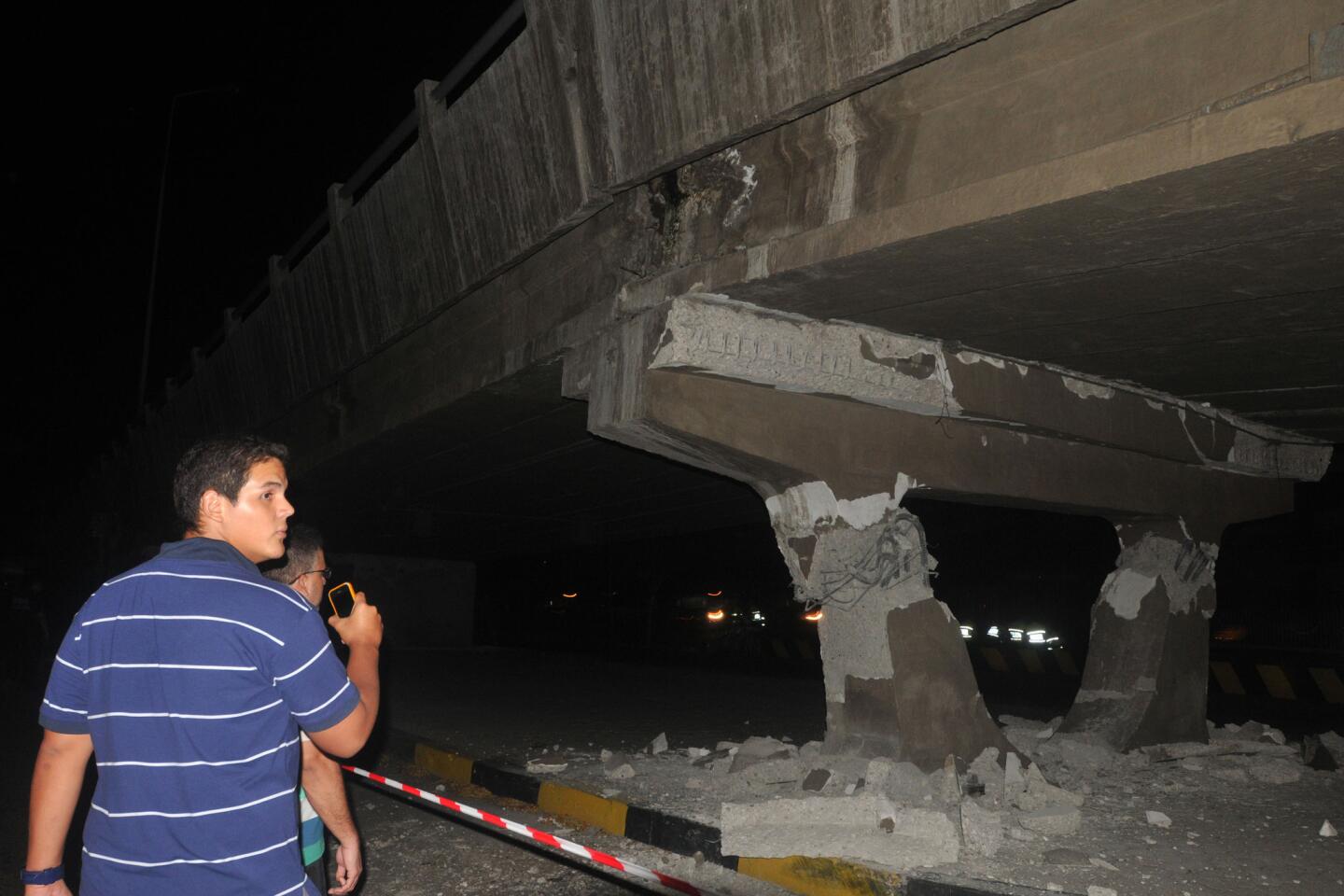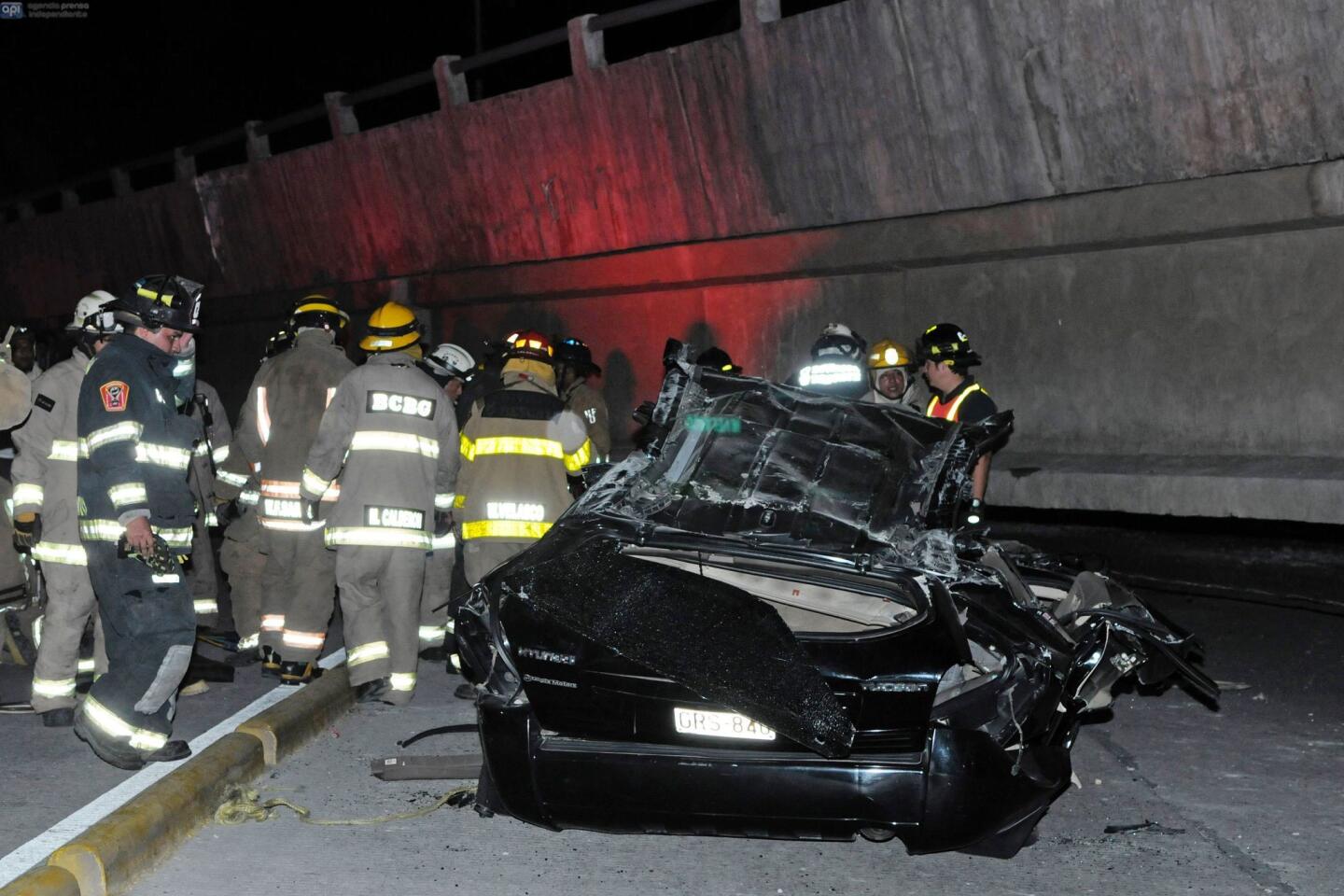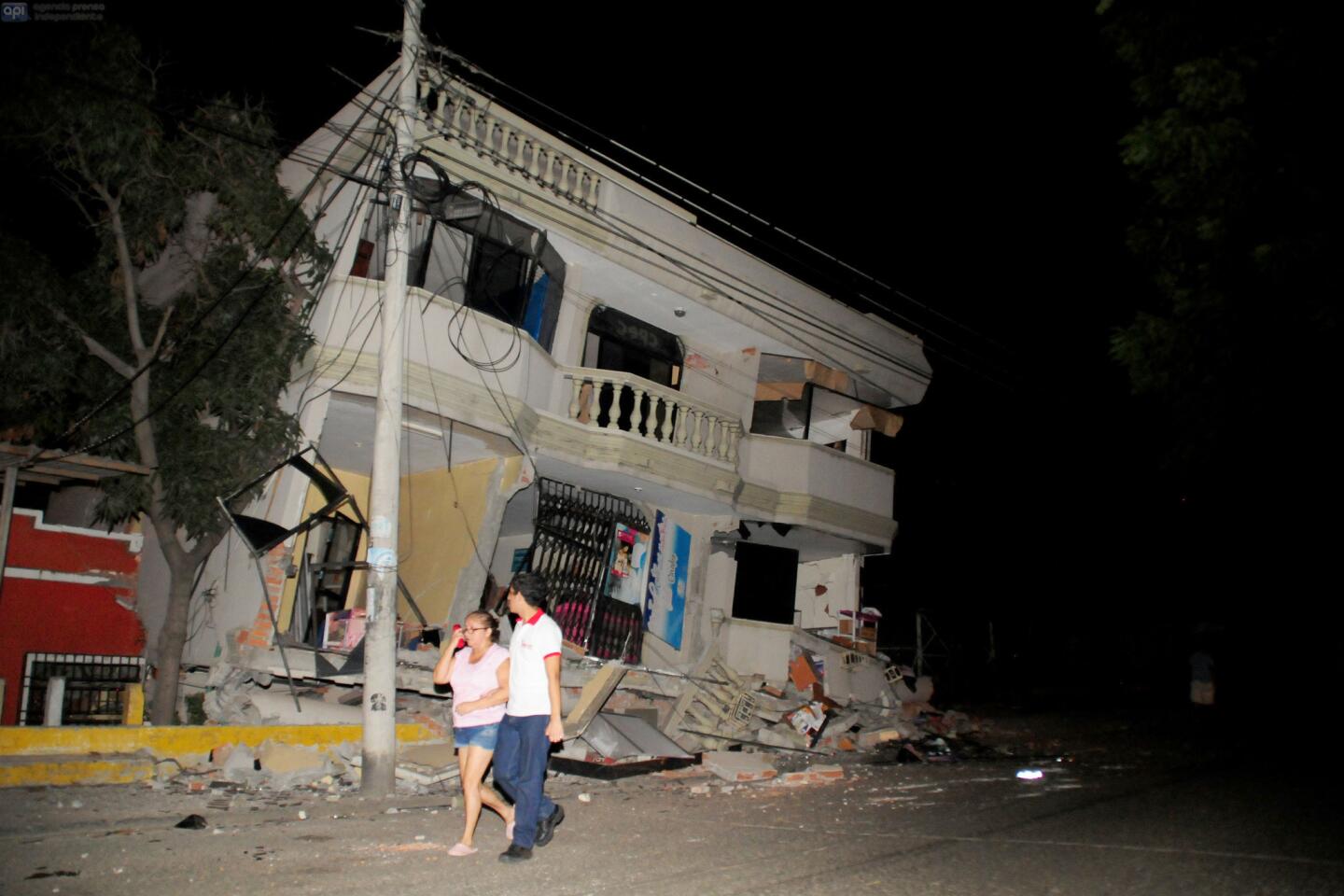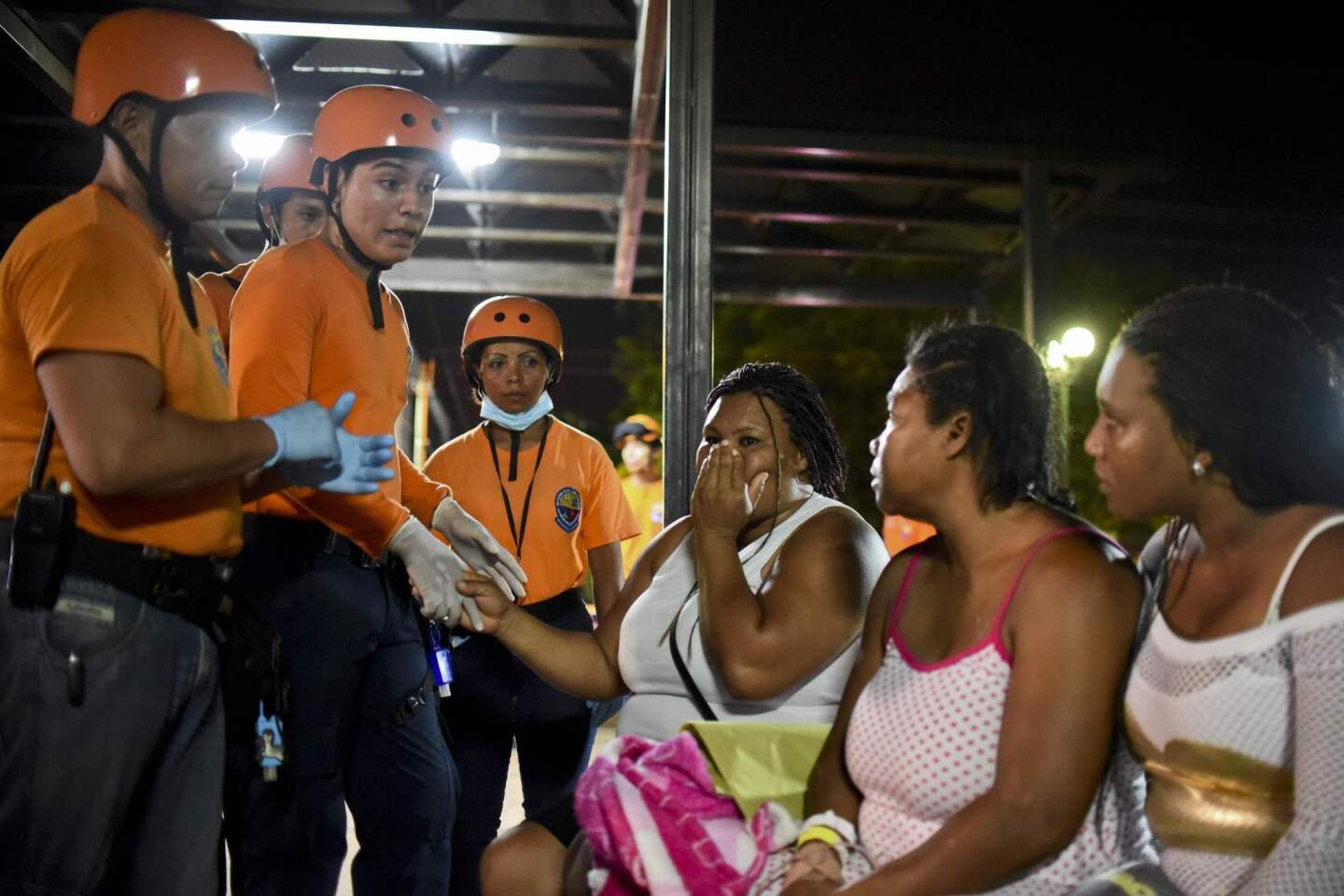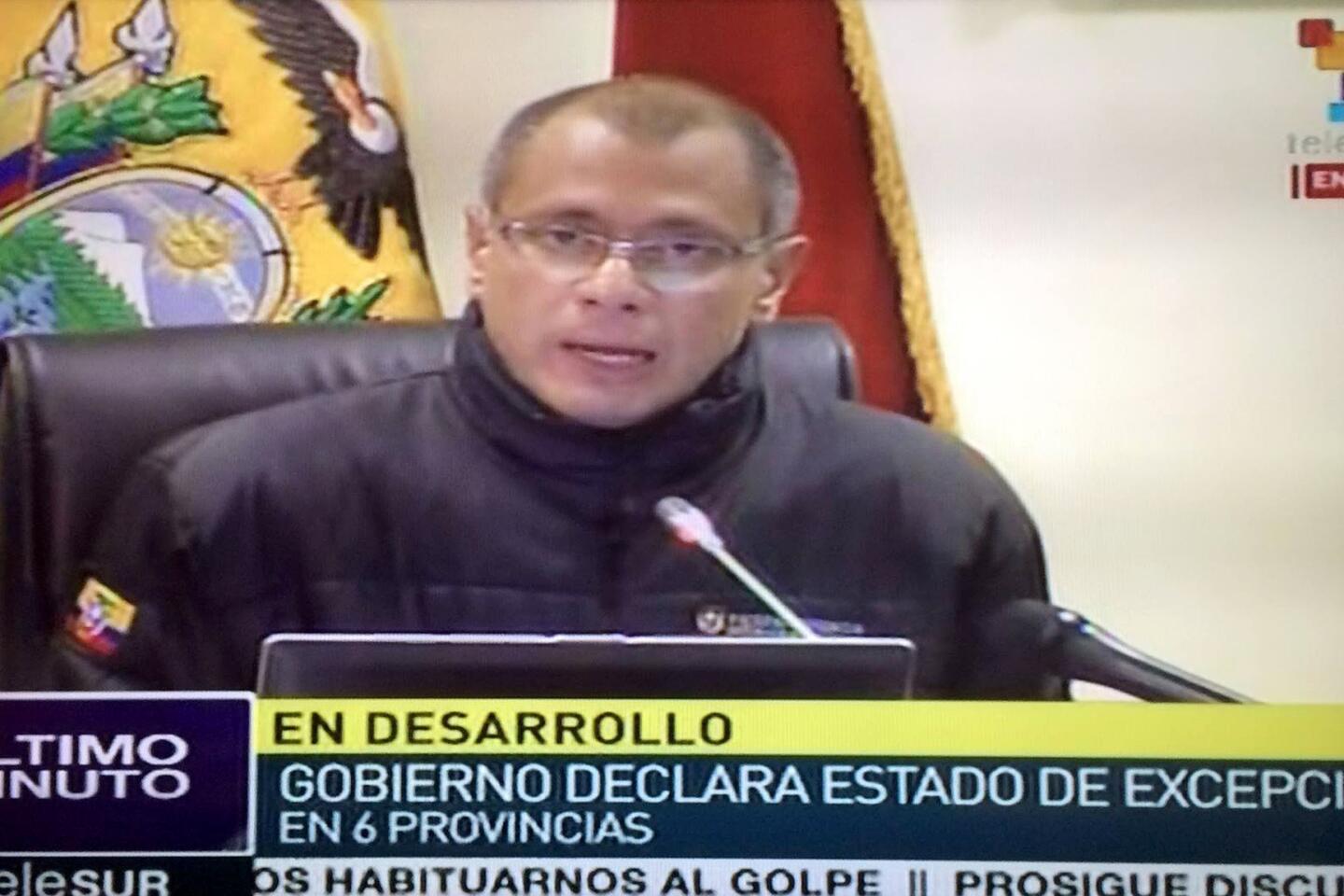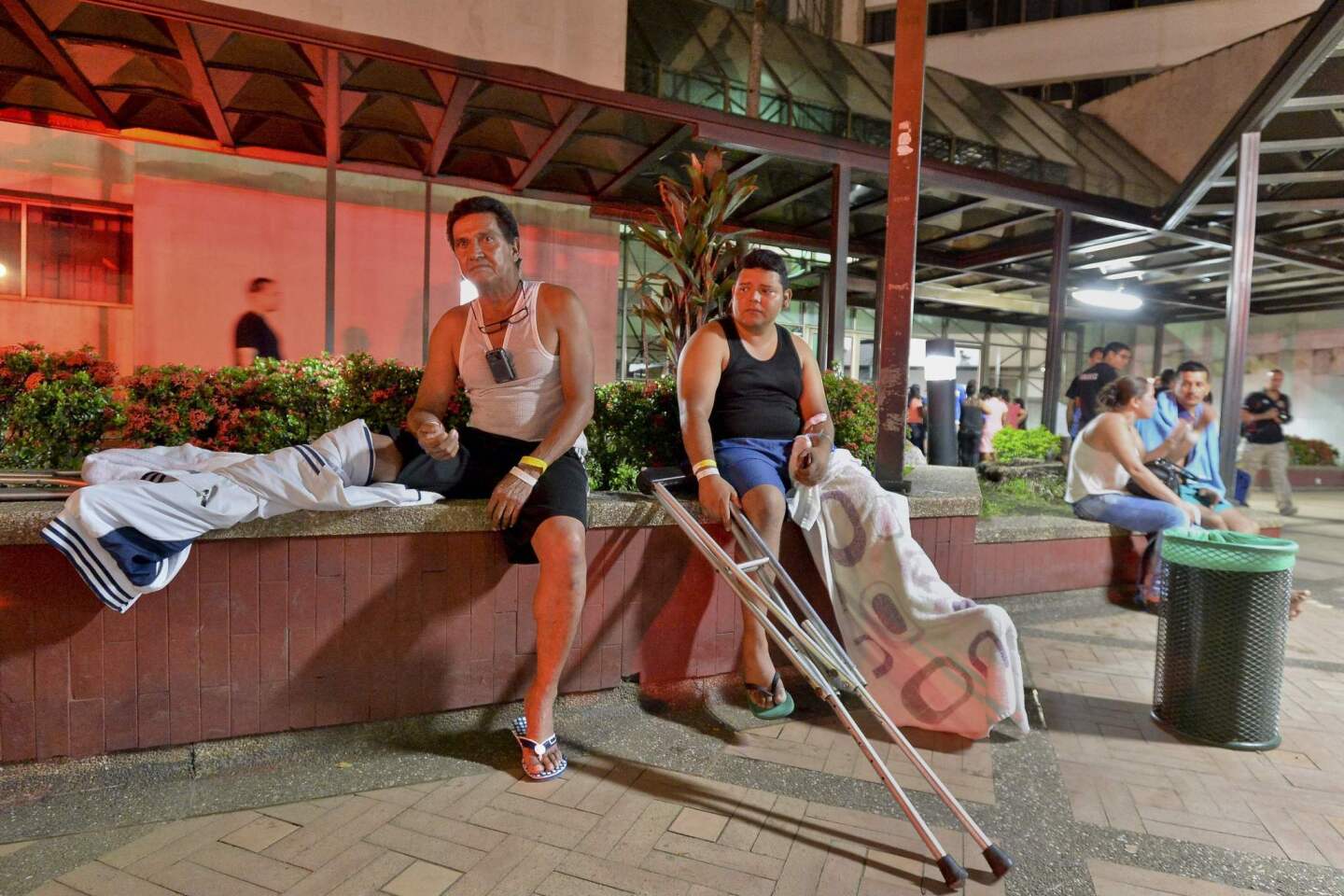As quake toll rises, Ecuador vows to rebuild: ‘Tragedy is huge ... so is the courage’ of the people
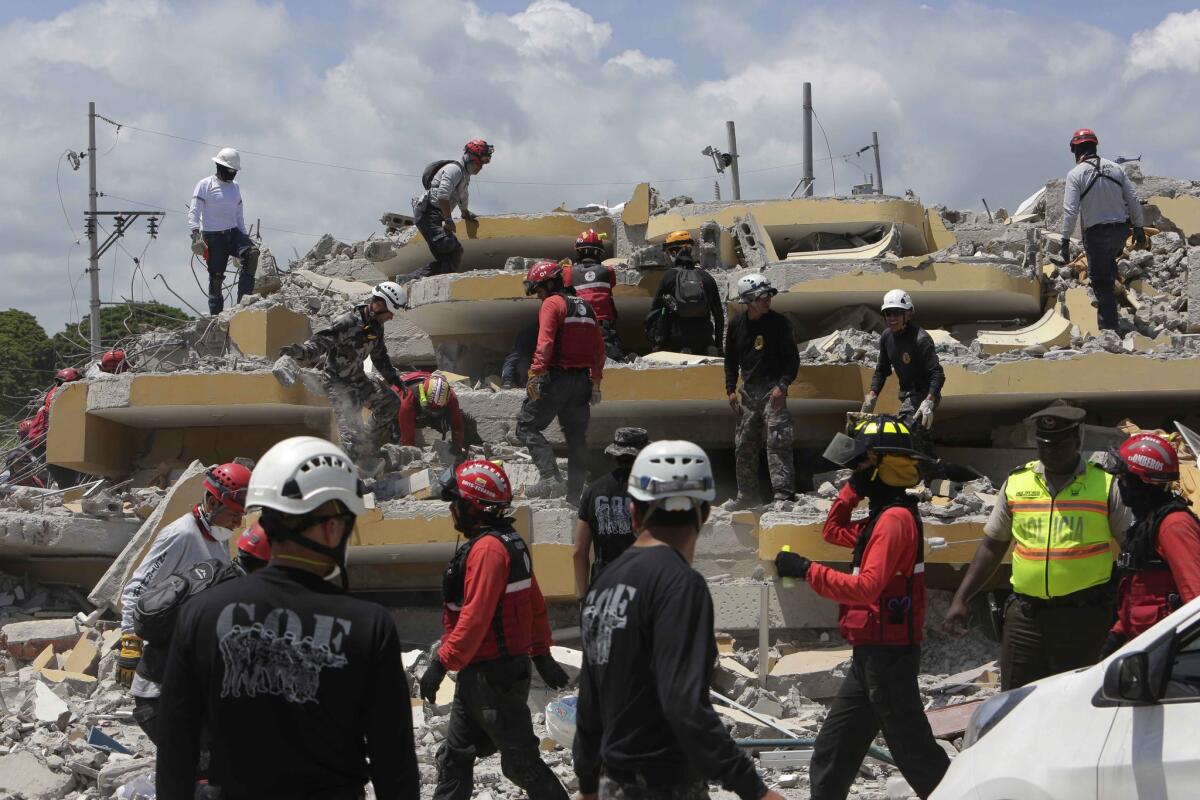
Volunteers search for victims in a hotel destroyed by the earthquake in Pedernales, Ecuador, on April 19, 2016.
As rescue teams continued to work against the clock to pull survivors from the ruins left by last weekend’s catastrophic earthquake, the government began to organize a relief and reconstruction effort for leveled cities that President Rafael Correa said would cost $3 billion and take years.
Rescue teams working with sniffer dogs continued pulling victims from the rubble in the hardest-hit cities, including Manta, Pedernales and Portoviejo. The death toll rose to 499 as of Tuesday afternoon, with at least 434 of the dead in coastal Manabi province, which includes all three cities.
But the toll is likely to rise substantially in coming days, given an estimate from Ecuador’s attorney general’s office that 1,700 people were missing. An additional 2,560 people were listed as injured.
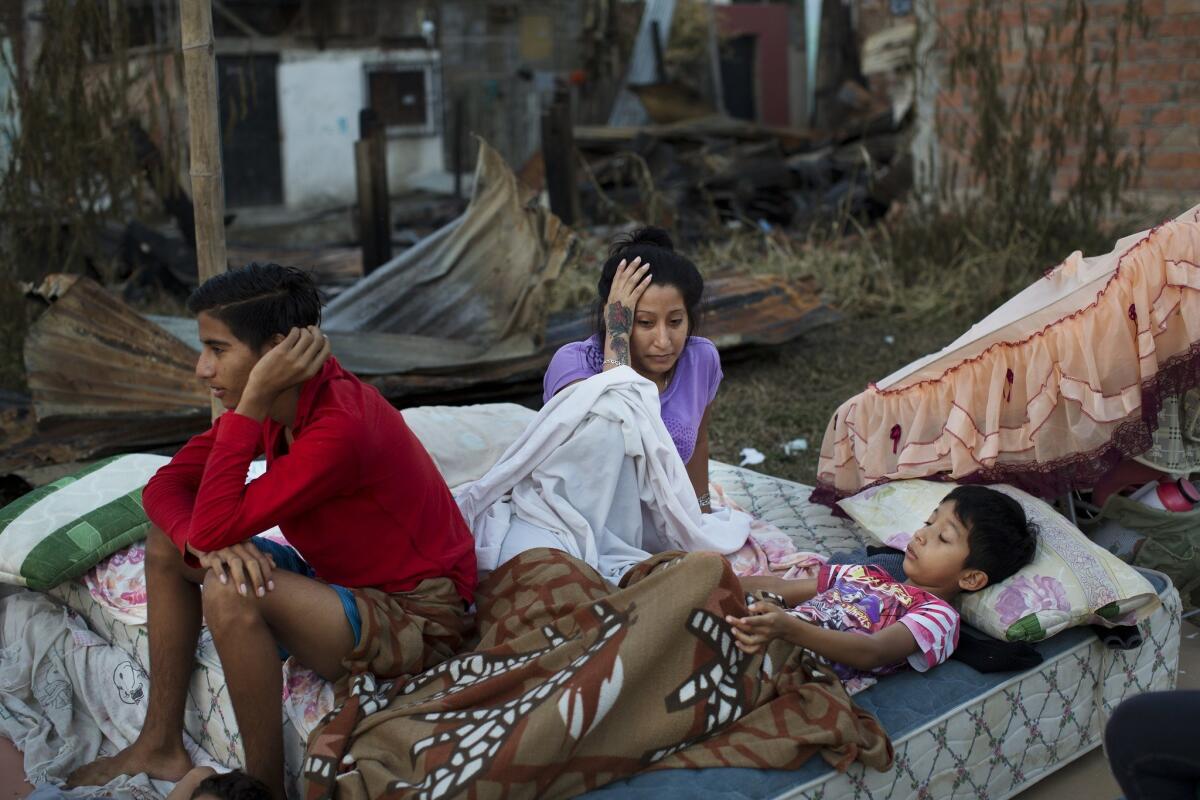
A family in Manta, Ecuador, wakes on April 19, 2016, after sleeping outside their home, which was destroyed by an earthquake.
“These have been some of the most difficult days of my life,” Correa said Tuesday after touring Manta and Chone. “The tragedy is huge, but so is the courage of the Ecuadorean people.”
Ecuadoreans continued to be on edge as 364 aftershocks from the quake were registered as of Tuesday morning. The odor of death began to permeate the air in Pedernales and other cities, underscoring the fact that many bodies lie beneath the rubble.
Medical officials warned of the health risks related to decomposing bodies. That was a factor in increasing activity by huge earthmoving vehicles, which began removing rubble and clearing streets in Manta and Pedernales, despite the risks to any survivors still pinned by fallen concrete.
See more of our top stories on Facebook >>
The government on Tuesday also issued an international appeal for help. Among the items most needed, it said, were bottled water and flashlights, reflecting the fact that much of the stricken area is still without potable water and electricity three days after the magnitude 7.8 quake.
The government has ordered all of Ecuador’s bottlers to temporarily turn over their operations to officials for the production of bottled water. In apparent response to looting and other security challenges, the government also said it was assigning 42,000 members of the armed services to the quake area.
Delivery of aid remains complicated by the closure of several regional roads. Nevertheless, 100 trailer-truckloads of relief supplies were being loaded at Guayaquil’s cavernous convention center for delivery by caravan early Wednesday to Manabi province. The exhibition and meeting complex has become the city’s main depot for donated supplies.
About 300 volunteers of all ages were inside helping sort huge piles of pillows, bedding, clothes and food items. “We know this is an enormous tragedy and that we can’t stand around with our arms folded,” Samantha Santillan, 15, said.
Guayaquil’s main bus station was mobbed Tuesday morning with more passengers than there were seats on buses, as people sought to go to stricken towns to check on relatives.
Daniel Espinosa, a 44-year-old construction worker, had to wait hours for a ticket to San Vicente in Manabi province, where his parents live. Their house is ruined and Espinosa is concerned that they are susceptible to disease from decomposing bodies beneath the town’s rubble.
“My mother, who is 79, was only slightly injured, but I want to bring them to Guayaquil until the situation settles,” Espinosa said. “So many cadavers can produce epidemics and my parents are of an advanced age. Their house was hit hard. The roof partially collapsed and the walls could cave in at any moment.”
NEWSLETTER: Get the day’s top headlines from Times Editor Davan Maharaj >>
A total of 647 international rescuers have arrived from Cuba, Colombia, Venezuela and other countries, the government said.
Correa appointed Minister of Production Vinicio Alvarado to head reconstruction and relief efforts. At a news conference, Alvarado appealed to donors to consult the website www.ecuadorlistoysolidario.com (in Spanish) for information on needed supplies and how best to deliver them. He asked donors not to send perishable food or medicines.
In a bid to reopen thousands of small stores and other businesses that have been closed since the quake, Alvarado said, the government will call on banks to ease loan terms and lower interest rates.
“We will soon announce a package of measures that will recover commercial and labor activity in the area so that local stores can begin operations immediately,” Alvarado said.
Banking activity is slowly resuming and at least one bank, Bank of the Pacific, has reopened 10 ATMs in the affected area, he said.
The government also announced that the World Bank and Inter-American Development Bank have extended loans totaling $600 million to Ecuador to aid in the rebuilding.
Although Guayaquil, the country’s largest city with 3 million inhabitants, escaped the scale of death and destruction seen north of the metropolis, several roadways, bridges and one tunnel collapsed, causing widespread traffic tie-ups.
Guayaquil Councilwoman Susana Gonzalez said city employees were working 24 hours a day in eight-hour shifts to help quake victims.
“This is the moment in which we have to unite and act as brothers,” Gonzalez said. “We have to help people who have not only lost their houses but also their family members.
Special correspondents Jaramillo Viteri and Kraul reported from Guayaquil and Bogota, Colombia, respectively.
ALSO
A picture of devastation in Ecuador after deadly 7.8 quake
Rescue goes slowly in Ecuador after 7.8 quake; death toll tops 400, expected to rise further
The war on drugs has failed. Now the U.N. is thinking about legalization
More to Read
Start your day right
Sign up for Essential California for news, features and recommendations from the L.A. Times and beyond in your inbox six days a week.
You may occasionally receive promotional content from the Los Angeles Times.
